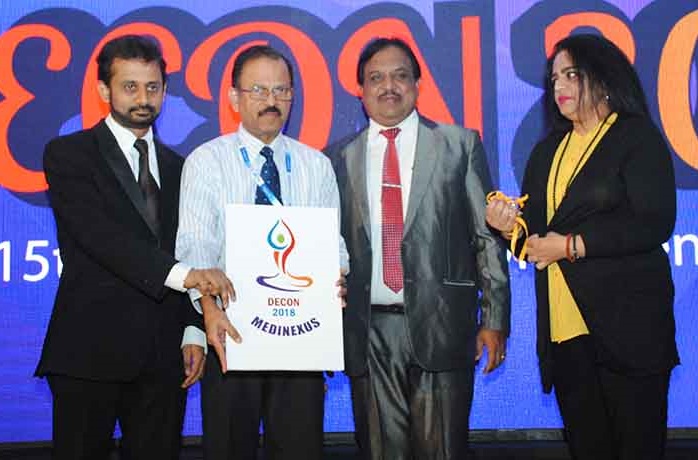
By Dr Suresh Damodharan, HOD & Consultant Endocrinologist, Sri Ramakrishna Hospital, Coimbatore
India faces a significant burden of thyroid diseases. Such conditions occur when the butterfly-shaped gland located at the base of the neck does not properly secrete hormones necessary for the body’s regular functioning. Hyperthyroidism is one type of thyroid dysfunction, which is when the thyroid gland becomes overactive and produces inappropriately high levels of thyroid hormone, speeding up one’s metabolism. If uncontrolled, this can affect one’s entire body, across functions like metabolism, growth, and development.
Considering the importance of the thyroid gland for the body’s optimal functioning, thyroid imbalance or dysfunction is a public health concern. Yet, awareness remains low, and thyroid diseases are frequently underdiagnosed. A study of adult patients in Tamil Nadu’s Kanchipuram district found thyroid dysfunction in 35.83% of patients of which 18.16% had hyperthyroidism. Educating people about the condition is key to encourage screening, which can lead to early detection, so people affected can seek care and have an improved quality of life.
One of the reasons why hyperthyroidism is easily overlooked is that the symptoms are often vague. Common signs include weight loss, fatigue, heat intolerance, tremors, and palpitations, which are seen in over 50% of patients. Other symptoms include difficulty sleeping, rapid and irregular heartbeat, vision changes, excessive hunger, and frequent bowel movements. Identifying the hyperthyroidism early on is important to avoid further health complications.
Risk of hyperthyroidism increases in women older than 35 years of age, people with autoimmune diseases like diabetes or with family members suffering from thyroid disorder, and in those who are pregnant.
While hyperthyroidism can be hard to diagnose based on symptoms alone, there are tests to detect such thyroid disorders. Laboratory-based blood tests are one such definitive way to tell if the gland is functioning properly. The Thyroid Stimulating Hormone (TSH) test is the most common and the one some physicians first order, with the highest sensitivity and specificity for hyperthyroidism. After this, they may test T4 and T3 levels if the TSH level is low. Hyperthyroidism is fortunately treatable, and testing is essential to kickstart care, which can help people control the disease and its related symptoms – so screen and treat early.
While the end of January marks the conclusion of this year’sThyroid Awareness Month, it remains as important as ever to drive awareness and empower people to seek timely diagnosis and care for thyroid disorders.
Disclaimer: Issued in public interest by Abbott for general awareness. This article is meant for general awareness only and is not meant to be a promotion of any product in any manner whatsoever. Dr Suresh Damodharan is engaged by Abbott Healthcare Private Limited (“Abbott”), and views expressed are his independent views. This article should not be considered as a substitute for doctor’s advice. Abbott shall not be held liable in any manner whatsoever for any action based on the information provided in this article and does not hold itself liable for any consequences, legal or otherwise, arising out of information in this article. Please consult your doctor for more information.
i. https://www.ncbi.nlm.nih.gov/pmc/articles/PMC3743364/
ii. https://himjournals.com/article/articleID=747
iv. https://core.ac.uk/download/pdf/50719545.pdf
v. https://www.abbott.in/thyroid-disorder.html
vi. https://images.indianexpress.com/2021/01/Patient-Education-Leaflet_Indian-Express-Microsite.pdf
Disclaimer: This content is part of a marketing initiative. No TNIE Group journalists were involved in the creation of this content.
 Medinexus, an app dealing with childhood obesity launched
Medinexus, an app dealing with childhood obesity launched
 Conference on Diabetes
Conference on Diabetes
 Navigating Hyperthyroidism from diagnosis to care
Navigating Hyperthyroidism from diagnosis to care
Copyright @2022 Dr Suresh Damodharan. Designed and Maintained by ITindustries.com